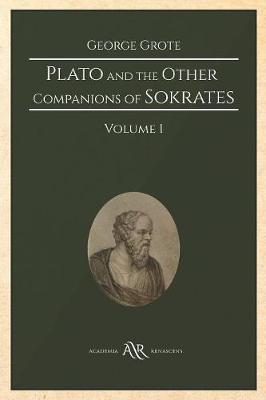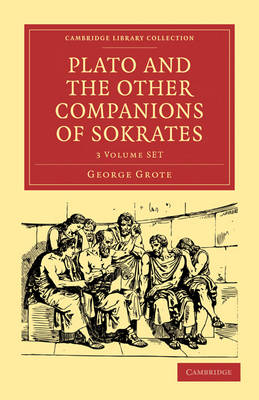Cambridge Library Collection - Classics
15 primary works • 18 total works
Volume 1
Volume 1
Volume 2
Volume 2
Volume 3
Volume 3
Volume 4
Volume 5
Volume 6
Volume 7
Volume 8
Volume 9
Volume 10
Volume 11
Volume 12
Plato and the Other Companions of Sokrates 3 Volume Paperback Set
by George Grote














